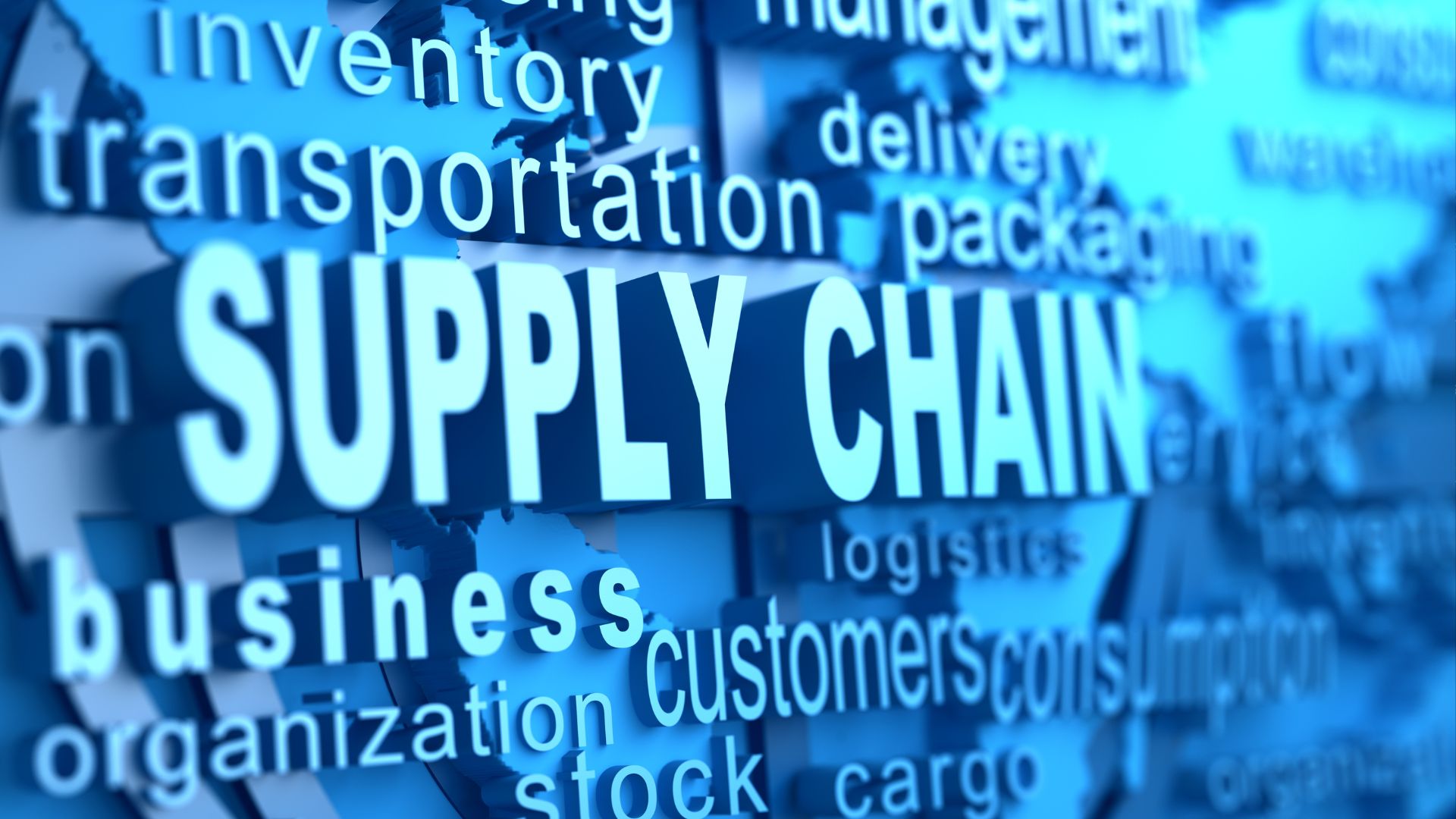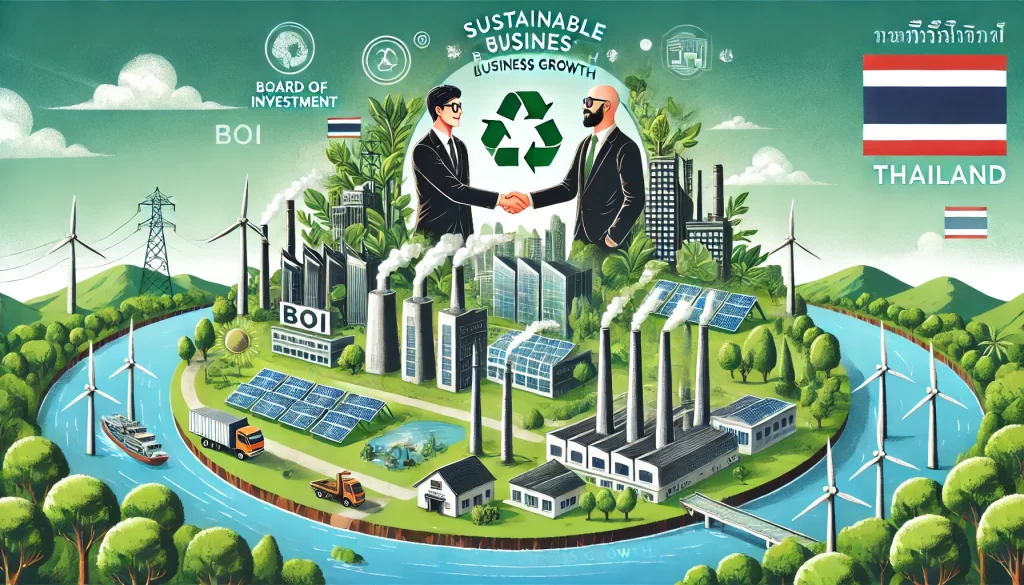In a world grappling with climate change and resource depletion, businesses are under increasing pressure to adopt sustainable practices. But how can companies balance profitability with environmental responsibility? Enter the Board of Investment (BOI), a powerful ally in the quest for sustainable business practices. 🌿💼
The BOI isn’t just another bureaucratic entity; it’s a catalyst for change in the business world. By offering financial incentives, fostering innovation, and promoting circular economy principles, the BOI is reshaping the way companies operate. From startups to multinational corporations, businesses are discovering that sustainability isn’t just good for the planet—it’s good for the bottom line too.
In this blog post, we’ll explore the multifaceted role of BOI in promoting sustainable business practices. We’ll delve into their commitment to sustainability, examine their innovative financial incentives, and uncover how they’re building capacity and knowledge in the business community. Get ready to discover how the BOI is helping companies transform their supply chains, measure their impact, and drive innovation in sustainable technologies. 🚀🌍
Understanding BOI’s Commitment to Sustainability

A. Definition and importance of sustainable business practices
Sustainable business practices refer to strategies that companies adopt to minimize their negative impact on the environment, society, and economy while maximizing long-term value. These practices are crucial for:
- Environmental protection
- Social responsibility
- Economic stability
- Long-term business viability
| Aspect | Importance |
|---|---|
| Environmental | Reduces resource depletion and pollution |
| Social | Improves community relations and employee well-being |
| Economic | Enhances brand reputation and attracts investors |
B. BOI’s sustainability goals and initiatives
BOI (Board of Investment) has established several key sustainability goals:
- Promoting green investments
- Encouraging renewable energy adoption
- Supporting circular economy practices
- Fostering innovation in sustainable technologies
To achieve these goals, BOI has implemented various initiatives:
- Green investment incentives
- Sustainability-focused training programs
- Collaborative partnerships with environmental organizations
- Regular sustainability audits for BOI-promoted companies
C. Alignment with global sustainability standards
BOI ensures its sustainability efforts align with internationally recognized standards:
- UN Sustainable Development Goals (SDGs)
- Global Reporting Initiative (GRI) guidelines
- ISO 14001 Environmental Management System
This alignment helps BOI:
- Maintain credibility in the global sustainability landscape
- Provide a standardized framework for businesses to follow
- Facilitate international collaborations and investments
By adhering to these standards, BOI demonstrates its commitment to global sustainability efforts while providing a clear roadmap for businesses to integrate sustainable practices into their operations.
BOI’s Financial Incentives for Sustainable Businesses

Green loans and eco-friendly project financing
BOI offers a range of green loans and eco-friendly project financing options to encourage businesses to adopt sustainable practices. These financial products are designed to support projects that have a positive environmental impact, such as energy efficiency upgrades, waste reduction initiatives, and clean technology implementations.
Key features of BOI’s green loans:
- Lower interest rates compared to traditional loans
- Flexible repayment terms
- Reduced collateral requirements
- Expedited approval process
| Loan Type | Purpose | Maximum Amount | Repayment Period |
|---|---|---|---|
| Energy Efficiency Loan | Upgrades to reduce energy consumption | $500,000 | Up to 10 years |
| Renewable Energy Loan | Installation of solar, wind, or other renewable energy systems | $1,000,000 | Up to 15 years |
| Green Manufacturing Loan | Eco-friendly production processes and equipment | $750,000 | Up to 12 years |
Preferential interest rates for sustainable ventures
To further incentivize sustainable business practices, BOI offers preferential interest rates for ventures that demonstrate a strong commitment to environmental stewardship. These rates are typically 1-2% lower than standard commercial loan rates, providing significant savings over the life of the loan.
Grants and subsidies for environmental innovations
BOI recognizes the importance of innovation in driving sustainability forward. To support this, they offer:
- Research and development grants for eco-friendly technologies
- Subsidies for pilot projects in sustainable business models
- Matching funds for environmental certifications and audits
Support for renewable energy projects
Renewable energy is a key focus area for BOI’s sustainability initiatives. The organization provides comprehensive support for businesses looking to invest in renewable energy projects, including:
- Specialized financing packages for solar, wind, and hydroelectric installations
- Technical assistance for project feasibility studies
- Partnerships with energy experts to ensure project success
With these financial incentives, BOI aims to make sustainable business practices not only environmentally responsible but also economically attractive. This approach helps bridge the gap between profitability and sustainability, encouraging more businesses to adopt eco-friendly practices.
Capacity Building and Knowledge Sharing

Sustainability workshops and training programs
BOI recognizes the importance of equipping businesses with the knowledge and skills needed to implement sustainable practices. To achieve this, BOI offers a comprehensive range of workshops and training programs tailored to various industries and sustainability challenges.
- Regular sustainability seminars
- Industry-specific sustainability workshops
- Online sustainability courses
- Hands-on training for implementing sustainable technologies
These programs cover topics such as:
- Energy efficiency and renewable energy adoption
- Waste reduction and management
- Sustainable supply chain practices
- Green product design and lifecycle assessment
Partnerships with environmental experts and organizations
To ensure the highest quality of knowledge sharing, BOI collaborates with leading environmental experts and organizations. These partnerships bring cutting-edge insights and practical expertise to businesses seeking to enhance their sustainability efforts.
| Partner Type | Contribution |
|---|---|
| Academic Institutions | Research-based insights and emerging trends |
| NGOs | On-the-ground experience and community engagement |
| Industry Associations | Sector-specific best practices and benchmarks |
| Government Agencies | Regulatory compliance and policy updates |
Access to sustainable business resources and best practices
BOI provides a wealth of resources to support businesses in their sustainability journey. These resources are designed to be easily accessible and applicable across various business contexts.
- Online resource library with case studies, guides, and toolkits
- Sustainability benchmarking tools
- Networking platforms for peer-to-peer learning
- Regular sustainability newsletters and updates
By offering these comprehensive capacity-building initiatives, BOI empowers businesses to integrate sustainability into their core operations effectively. This approach not only benefits individual companies but also contributes to the overall sustainability of the business ecosystem. As we move forward, we’ll explore how BOI promotes circular economy principles, further advancing sustainable business practices.
Promoting Circular Economy Principles

Encouraging waste reduction and recycling initiatives
BOI actively promotes waste reduction and recycling initiatives as key components of circular economy principles. These efforts aim to minimize environmental impact while maximizing resource efficiency. Here are some ways BOI supports these initiatives:
- Providing financial incentives for waste management projects
- Offering tax breaks for companies implementing recycling programs
- Funding research and development in innovative recycling technologies
Supporting product lifecycle management
Product lifecycle management is crucial for sustainable business practices. BOI assists companies in implementing effective strategies throughout a product’s lifecycle:
| Lifecycle Stage | BOI Support |
|---|---|
| Design | Grants for eco-friendly product design |
| Production | Incentives for resource-efficient manufacturing |
| Use | Promotion of product-as-service models |
| End-of-life | Funding for take-back and refurbishment programs |
Facilitating industrial symbiosis networks
Industrial symbiosis is a cornerstone of the circular economy, where waste from one industry becomes a resource for another. BOI plays a vital role in fostering these networks by:
- Organizing networking events for companies to explore symbiotic relationships
- Providing digital platforms to match waste producers with potential users
- Offering financial support for infrastructure development to enable resource sharing
By promoting these circular economy principles, BOI is driving sustainable business practices that benefit both the environment and the economy. These efforts contribute to reduced waste, increased resource efficiency, and improved competitiveness for businesses adopting circular models.
Enhancing Supply Chain Sustainability

Sustainable procurement guidelines
Sustainable procurement is a cornerstone of enhancing supply chain sustainability. BOI encourages businesses to adopt comprehensive guidelines that prioritize environmental and social considerations alongside economic factors. These guidelines typically include:
- Environmental criteria: Carbon footprint, resource efficiency, waste reduction
- Social criteria: Labor practices, human rights, community impact
- Economic criteria: Total cost of ownership, long-term value creation
Here’s a comparison of traditional vs. sustainable procurement:
| Aspect | Traditional Procurement | Sustainable Procurement |
|---|---|---|
| Focus | Cost and quality | Triple bottom line (People, Planet, Profit) |
| Timeframe | Short-term | Long-term |
| Supplier relationships | Transactional | Collaborative |
| Risk management | Limited | Comprehensive |
Supplier sustainability audits and certifications
BOI promotes rigorous supplier sustainability audits to ensure adherence to established guidelines. These audits assess:
- Environmental management systems
- Social responsibility practices
- Ethical business conduct
- Transparency and reporting
Certifications play a crucial role in validating supplier sustainability. Common certifications include:
- ISO 14001 for environmental management
- SA8000 for social accountability
- Fair Trade for ethical sourcing
Collaborative platforms for sustainable sourcing
To facilitate sustainable sourcing, BOI supports the development of collaborative platforms that connect businesses with sustainable suppliers. These platforms offer:
- Supplier databases with sustainability ratings
- Best practice sharing forums
- Joint sustainability initiatives
- Real-time tracking of sustainability metrics
By leveraging these platforms, businesses can make informed decisions and drive continuous improvement in their supply chain sustainability efforts.
Measuring and Reporting Sustainability Impact

Key performance indicators for sustainable practices
When measuring sustainability impact, businesses must focus on specific Key Performance Indicators (KPIs). These KPIs help track progress and identify areas for improvement. Here’s a table highlighting some essential sustainability KPIs:
| Category | KPI Examples |
|---|---|
| Environmental | Carbon footprint, Water usage, Waste reduction |
| Social | Employee satisfaction, Community engagement, Diversity & inclusion |
| Economic | Sustainable revenue growth, Ethical sourcing percentage, Green investment |
Sustainability reporting frameworks and tools
To standardize sustainability reporting, several frameworks and tools have been developed. Some popular options include:
- Global Reporting Initiative (GRI)
- Sustainability Accounting Standards Board (SASB)
- Task Force on Climate-related Financial Disclosures (TCFD)
- CDP (formerly Carbon Disclosure Project)
These frameworks provide guidelines for consistent and comparable sustainability reporting across industries.
Transparent communication of sustainability achievements
Effective communication of sustainability achievements is crucial for stakeholder engagement. Businesses should:
- Regularly publish sustainability reports
- Use clear, jargon-free language
- Provide context for data and achievements
- Highlight both successes and areas for improvement
Recognition and awards for sustainable businesses
Recognizing sustainable business practices can incentivize continued improvement. BOI and other organizations often offer awards such as:
- Sustainability Excellence Awards
- Green Business Certifications
- Industry-specific sustainability recognitions
These accolades not only motivate businesses but also raise awareness about sustainable practices within industries.
Fostering Innovation in Sustainable Technologies

R&D funding for eco-friendly solutions
BOI plays a crucial role in fostering innovation by providing substantial R&D funding for eco-friendly solutions. This financial support enables companies to develop cutting-edge technologies that address pressing environmental challenges. Some key areas of focus include:
- Renewable energy technologies
- Waste reduction and recycling innovations
- Water conservation and treatment solutions
- Sustainable agriculture practices
| Funding Type | Description | Typical Amount |
|---|---|---|
| Grants | Non-repayable funds for specific projects | $50,000 – $500,000 |
| Low-interest loans | Favorable terms for long-term R&D investments | $100,000 – $2 million |
| Tax incentives | Reduced tax burden for qualifying R&D expenses | Up to 200% deduction |
Incubation programs for green startups
To nurture the next generation of sustainable businesses, BOI has established comprehensive incubation programs for green startups. These programs offer:
- Mentorship from industry experts
- Access to state-of-the-art facilities and equipment
- Networking opportunities with potential investors and partners
- Business development support and marketing assistance
Collaboration with research institutions and universities
BOI recognizes the importance of bridging the gap between academia and industry. By fostering collaboration with research institutions and universities, BOI facilitates:
- Joint research projects tackling complex sustainability challenges
- Technology transfer programs to commercialize promising innovations
- Student internship and placement programs in sustainable industries
- Shared use of advanced research facilities and equipment
These partnerships accelerate the development and adoption of sustainable technologies, creating a robust ecosystem for innovation in the green sector.
The Board of Investment (BOI) plays a crucial role in driving sustainable business practices across industries. Through financial incentives, capacity building initiatives, and the promotion of circular economy principles, BOI encourages companies to adopt environmentally friendly and socially responsible approaches. By focusing on supply chain sustainability and fostering innovation in sustainable technologies, BOI helps businesses reduce their environmental impact while improving their long-term viability.
As sustainability becomes increasingly important in the global business landscape, organizations that align with BOI’s initiatives stand to gain significant competitive advantages. By embracing sustainable practices, companies can not only contribute to a healthier planet but also enhance their reputation, reduce costs, and tap into new market opportunities. It’s time for businesses to leverage BOI’s support and make sustainability a core part of their strategy for long-term success.

